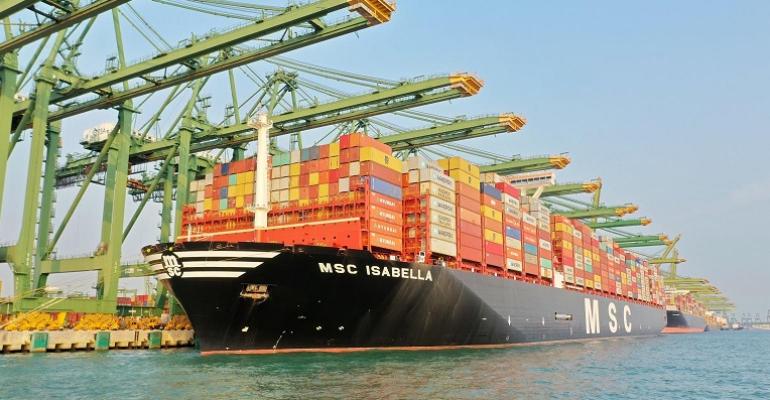This is the first time MSC is partnering with a major institution in China to explore the technical pathway for decarbonisation.
The three-year agreement will leverage on the strengths of both parties to explore innovative ways to jointly cooperate on relevant research and discuss progress to find the range of solutions that will make maritime transportation even more efficient while continuing to serve as the backbone of global trade.
Bud Darr, Executive Vice President Maritime Policy and Government Affairs, MSC Group and Fei Wei Jun, President of China Waterborne Transport Research Institute, signed the agreement in an online ceremony on behalf of both organisations.
“The path to decarbonisation will require strong partnerships with key stakeholders across various business sectors and government. We are very excited to announce our partnership with the China Waterborne Transport Research Institute on this hugely important global priority,” said MSC’s Darr.
“Sustainability and focus on climate issues have been fast-rising up the agenda in China, and we are looking forward to closely collaborating with the China Waterborne Transport Research Institute to accelerate innovation and R&D we urgently need to reach a net-zero carbon future for shipping.”
Under the MoU framework, both organisations will establish a collaborative process dedicated to R&D, knowledge sharing and business collaboration. A designated chairperson from each organisation will jointly lead the steering committee, with a working committee in charge of implementing the activities. Industrial experts will also be invited to conduct assessments on the results of the research studies.
MSC is actively working to further improve the efficiency of the containerships in its fleet to help reduce emissions and it continues to study a range of different future fuel options such as hydrogen, ammonia, methanol, and synthetic fuels.
Copyright © 2024. All rights reserved. Seatrade, a trading name of Informa Markets (UK) Limited.
Add Seatrade Maritime News to your Google News feed.  |

